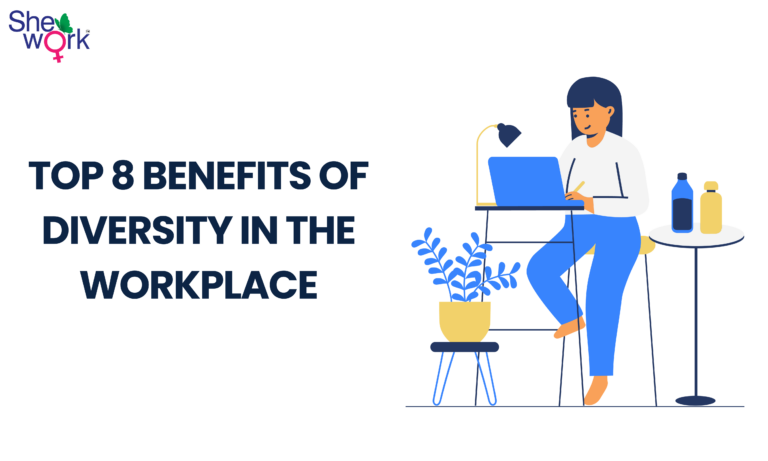Unlocking Success: The Profound Benefits of Diversity in the Workplace

In today’s fast-paced and dynamic business landscape, embracing diversity in the workplace isn’t just a trend; it’s a strategic imperative. Companies that prioritise diversity and inclusion stand to gain a multitude of advantages that extend beyond social responsibility. In this blog post, we’ll explore the significance of gender diversity in the workplace and delve into the top benefits of fostering an inclusive environment.
What is Gender Diversity in the Workplace?
Before we delve into the benefits, let’s first understand what we mean by gender diversity in the workplace. Gender diversity involves creating an environment where individuals of different genders have equal opportunities for growth, representation, and contribution within an organisation. It goes beyond mere numbers and focuses on creating an inclusive culture where everyone feels valued and empowered, regardless of gender identity.
Where are we currently at with Gender Diversity in the Workplace?
The landscape of gender diversity in the workplace has evolved over the years, but there’s still work to be done. According to recent studies, women remain underrepresented in many industries, especially in leadership roles. However, organisations increasingly recognise the importance of addressing this disparity and are implementing strategies to bridge the gender gap. 11 Ways Of Empowering Women is a valuable resource that sheds light on empowering women in various professional spheres. It provides insights into practical steps organisations can take to promote gender diversity and empower women in the workplace.
The Top Benefits of Gender Diversity in the Workplace
- Innovation and Creativity:
Diverse teams bring together various perspectives, ideas, and experiences, fostering a creative environment that can lead to innovative solutions and products. - Improved Decision-Making:
Gender-diverse teams are shown to make better decisions. Including different viewpoints helps in considering a broader range of factors, leading to more informed and effective choices. - Enhanced Company Reputation:
Organisations committed to gender diversity often have a positive public image. Consumers and clients increasingly value businesses prioritising inclusivity, contributing to a more substantial brand reputation. - Attracting Top Talent:
Embracing gender diversity makes your organisation more attractive to a wider talent pool. This is particularly crucial in fields like technology, where the push to hire women in tech is gaining momentum.
How Can Organisations Be More Gender-Inclusive?
Creating a gender-inclusive workplace involves intentional efforts and a commitment to change. Here are some strategies that organisations can implement:
Diverse Recruitment Practices:
Actively increasing diversity in the workplace starts with the recruitment process. Ensure job descriptions are inclusive and use diverse channels to reach a broader range of candidates.
- Equal Opportunities for Growth:
Provide equal opportunities for professional development and advancement. Establish mentorship programs that connect employees with diverse backgrounds to foster guidance and support. - Flexible Work Policies:
Implement flexible work policies that accommodate the diverse needs of employees. This includes considering different work schedules, remote options, and family-friendly policies. - Promote a Culture of Inclusivity:
Foster a culture where everyone feels valued and included. This involves promoting open communication, addressing bias, and creating a safe space for employees to express their unique perspectives.
Why Are Diversity Skills Important in the Workplace?
Diversity skills, including cultural competence, empathy, and effective communication, are essential for a harmonious and productive workplace. These skills contribute to:
- Effective Collaboration:
Employees with diverse skills can collaborate more effectively with colleagues from different backgrounds, leading to better teamwork and problem-solving. - Conflict Resolution:
Diversity skills help address and resolve conflicts arising from cultural or personal differences. - Enhanced Employee Engagement:
Employees feel more engaged and connected when they perceive that their organisation values diversity and is committed to creating an inclusive environment.
Why is Diversity Important in the Future Workplace?
As we look towards the future of work, the importance of diversity becomes even more pronounced. Several factors contribute to this significance:
- Changing Demographics:
Global demographics are evolving, with an increasingly diverse workforce. Organisations that embrace this change will be better positioned to navigate the complexities of a diverse marketplace. - Innovation and Adaptability:
The future workplace will demand innovation and adaptability. Diverse teams are more adept at navigating change, bringing varied perspectives, and contributing to innovative solutions. - Talent Attraction and Retention:
The future workforce will actively seek employers who prioritise diversity and inclusion. Companies that foster a diverse and inclusive environment will have a competitive edge in attracting and retaining top talent.
What are the Positive Effects of Diversity?
- Elevated Employee Morale:
Employees feel more motivated and engaged when their workplace values diversity. This elevated morale positively impacts teamwork and overall job satisfaction. - Increased Creativity and Problem-Solving:
Diversity fosters a rich tapestry of ideas and approaches. This diversity of thought enhances creativity and problem-solving capabilities within the organisation. - Broader Skill Set:
A diverse workforce brings together individuals with different skill sets and expertise. This diversity of skills creates a well-rounded team capable of tackling various challenges. - Global Market Competence:
Organisations are better equipped to understand and navigate international markets with a diverse workforce. This cultural competence is invaluable in a globalised business landscape.
In conclusion, the benefits of diversity in the workplace are extensive and multifaceted. By actively working towards improving diversity, equity, and inclusion, organisations contribute to a more just and equitable society and position themselves for long-term success in an increasingly diverse and competitive world. Remember, fostering diversity is an ongoing process that requires commitment, continuous education, and a willingness to adapt. The journey towards a truly inclusive workplace is a collective effort that reaps rewards for the organisation and society.
